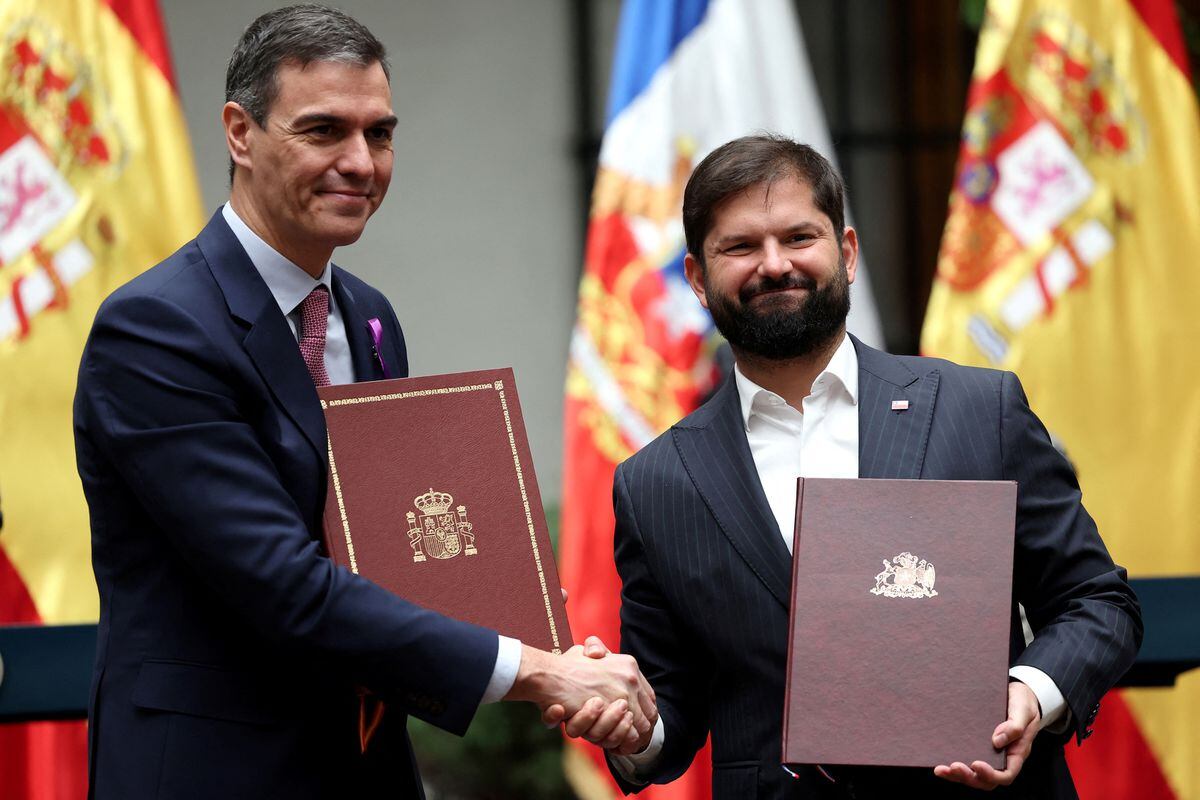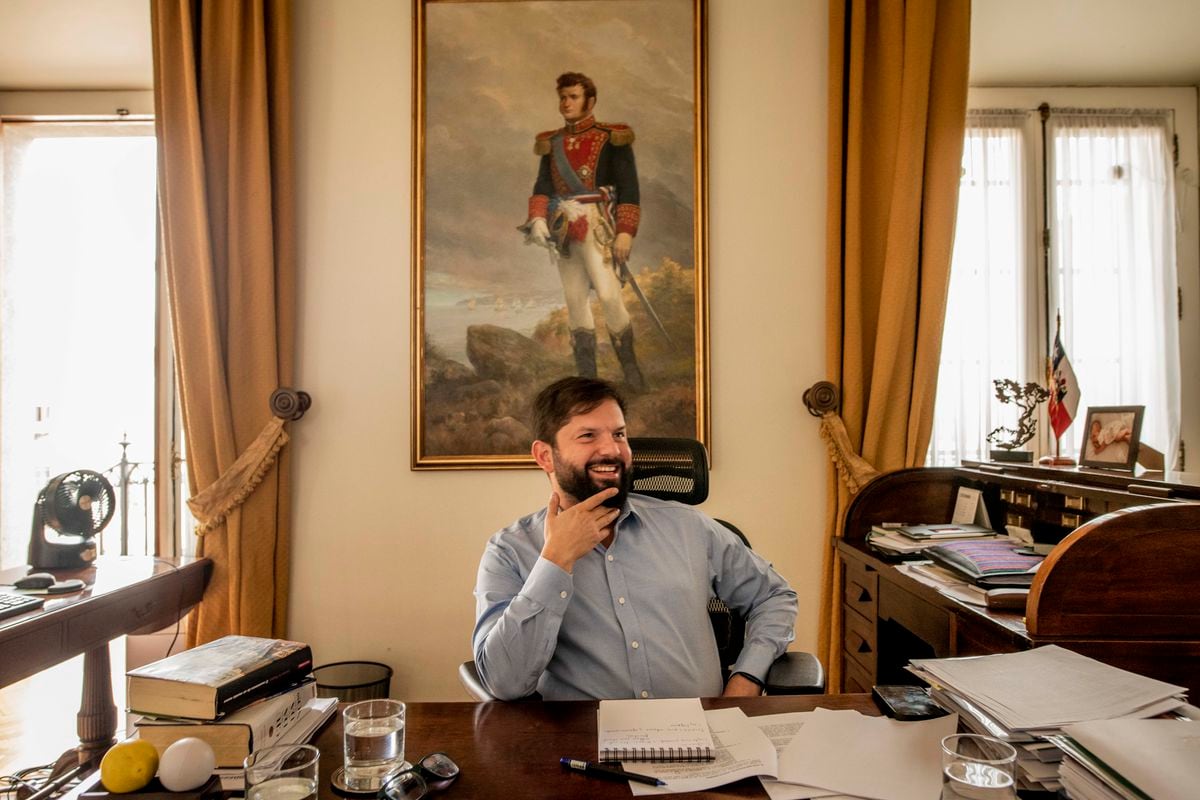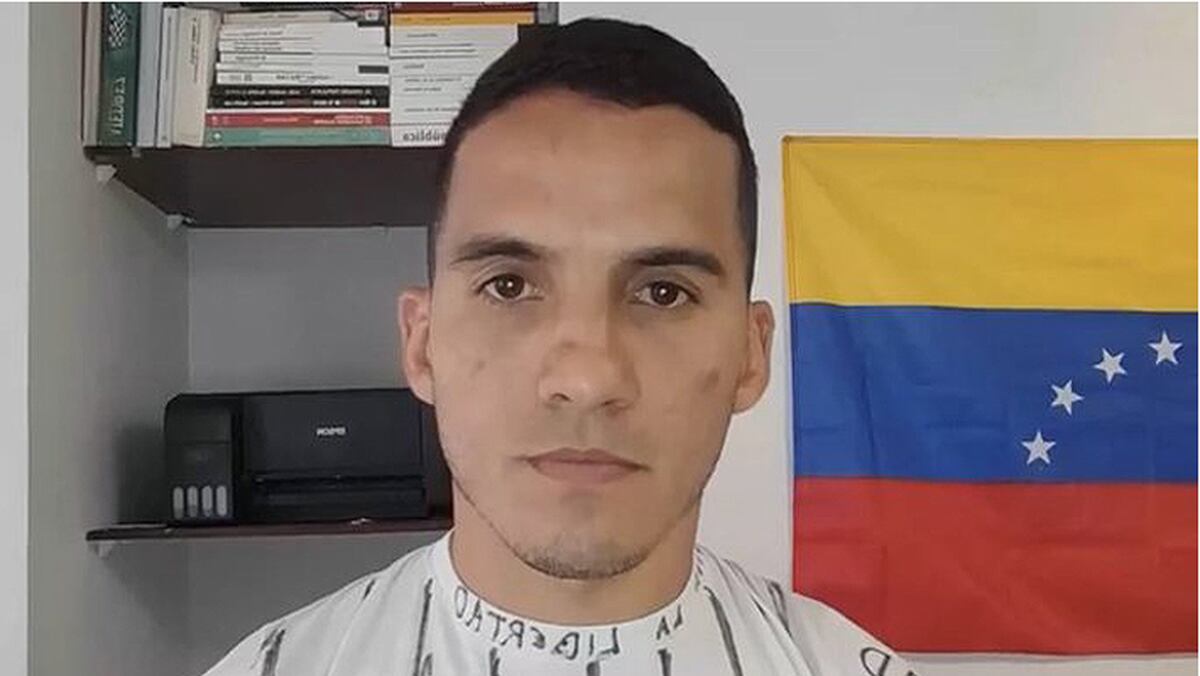Chilean President Gabriel Boric greets his supporters at the Limache Station, located in the Valparaíso Region.DPA via Europa Press (DPA via Europa Press)
Chilean President Gabriel Boric became one of the world's youngest presidents in March at the age of 36.
But the international star of the leftist politician, who shines alongside Canadian Prime Minister Justin Trudeau or New Zealand Prime Minister Jacinda Ardern, does not have the same luminosity within his country's borders.
Ten months after the start of his government, he has very high disapproval rates.
According to the pollster Cadem, he reaches 70%.
According to the Center for Public Studies, it is at 61%.
The biggest earthquake for his project occurred in September, when the public widely rejected the proposal for a new Constitution supported by his government and, since then, the path that the president will take to continue navigating in troubled waters has not been evident. From Chile,
“There is a cumulative effect.
He receives the country in the most complex conditions than any other president in recent decades ”, analyzes Roberto Izikson, from the pollster Cadem.
It points to "the effects of the outbreak, the pandemic, the economic crisis, inflation, the increase in the perception of crime, the conflict in La Araucanía [in the Mapuche area] and the uncertainty due to the plebiscite" last September, where a 62% preferred to reject the transformative text drafted by a convention.
Izikson lists other milestones in this complex facility.
"Boric bet on his generation in the formation of his first Cabinet and the lack of experience to govern was felt very quickly, which ended with the departure of Izkia Siches from the Interior", adds the pollster,
A central issue has been crime, the first priority of Chileans, according to the Center for Public Studies, well above other important issues such as pensions, health and education.
Izikson says that only after the September plebiscite did the government put public order as a priority, but then, on December 30, the president pardoned 13 convicted of different crimes, 12 of them for events that occurred in the social outbreak of 2019. “People are afraid and have not seen the government take charge of the issue consistently.
The pardons are a kind of blur over the last four months and we will see the effects," says the Cadem pollster, who estimates that "it will be difficult to reverse this trend of disapproval,
because years two and three of the governments are the most negative” in periods of four years, like the Chilean one.
He sees, however, a way out: “Boric has to define a road map and stick to it.
It is costing him dearly to change his mind so frequently.”
The political scientist Claudia Heiss assures that the president has had a complex entry "due to external factors and internal errors" and that he is going through "a difficult moment" as a result of the pardon crisis, a process that Boric himself described as "messy". .
He paid for it with the fall of his Minister of Justice and his Chief of Staff, both from the Approve Dignity coalition, the original of Boric, made up of the Broad Front and the Communist Party.
Since the September plebiscite, it has been another pro-government force, that of Democratic Socialism, of the moderate left, which has acquired greater prominence.
"I think things should calm down," adds Heiss, who believes it is important that Chile is leading a new constituent process.
"It is in the hands of the political parties to build dialogues and advance the agendas of social issues and reforms, such as tax and pensions," says the head of the Political Science program at the Faculty of Government of the University of Chile.
Regarding the disapproval, Heiss says that "there were high expectations from the adherents that could not be fulfilled", especially from the Approve Dignity coalition.
“There are not the votes in Congress nor the new Constitution that would have allowed a more robust advance.
There is a feeling of unease”, says the academic.
In the midst of everything, the economic situation: an unprecedented rise in the cost of living for Chileans in the last three decades and a 2023 with recession.
“The Government has implemented an austerity policy greater than that of Sebastián Piñera, although it is obviously a different context.
He has applied tremendously responsible fiscal spending that is trying to curb inflation,” says Heiss, who warns that inflation has diminished the impact of the increase in the minimum wage and other social aid policies.
Regarding the exit scenarios at this complex moment, the political scientist thinks that Chile comes "from an epic, historical illusion, from the outbreak and from the constituent process, so it will be difficult to return to it", although she considers the Government's route "correct" : “Moderate expectations and the agenda,
In these 10 months, Boric has had to deal with the two pro-government forces: I Approve Dignity and Democratic Socialism.
For Cristián Valdivieso, analyst and founder of the polling firm Criteria, the president "is in tension between these two souls, who end up being his own two souls."
On the one hand, “a sector tells him that he comes from social movements, that he won the primaries with Approve Dignity, while the other drive reinforces that he has to govern for the entire country, that the result of the plebiscite was forceful and that, if not turns towards Democratic Socialism, he will not be able to continue governing”.
According to Valdivieso, Boric "has given signals in both directions" and that "the pardons reinstate the idea of a president confused between these two souls."
The analyst recalls that “in Chile, between the time he won and took office as president, there was a kind of illusion with Boric, of hypervaluation.
A young man who came to renew politics, but now faces difficulties in governing”.
Valdivieso believes that to find a way out, the president "has to define his political project more clearly, have consistency to push that decision and order his entire coalition around his own definitions."
Sylvia Eyzaguirre, a researcher at the Center for Public Studies, sets her sights on another issue: the low approval and high disapproval of Boric and his government "is presented in a context of great skepticism regarding the future of the country."
But in his opinion, despite the great complexities, in recent days a key event occurred that "if the Government is intelligent, it can take it in its favor": the constitutional reform to begin the new constitutional process, with different rules and deadlines the previous.
"If it is possible to channel, a public debate is generated, agreements are reached and a text that calls for unity is achieved, a good opportunity for the Government could be configured, if it knows how to take advantage of it," Eyzaguirre analyzes.
Regarding popularity, the researcher speaks of "the impressive mistakes that have been made",
but calls to observe that Boric started his government with lower levels of approval than Michelle Bachelet and Piñera, which shows a country that is complex to govern.
“Citizens are becoming more and more apathetic, apolitical, they feel more distrustful and skeptical.
Each new government starts with a lower degree of confidence than the previous one”, adds the analyst.
In favor of the Government time plays.
He still has three years and two months left in La Moneda and, after an economically complex 2023, where people's frustrations will have to be managed, the following two years should represent relief for the pocket of the citizenry, with less inflation and higher growth.
Subscribe here to the EL PAÍS America
newsletter
and receive all the latest news in the region.



/cloudfront-eu-central-1.images.arcpublishing.com/prisa/DAXPXX7XEC2R2VNNOX5XEX4T2U.jpg)











